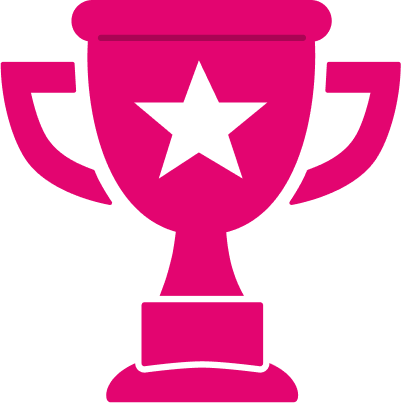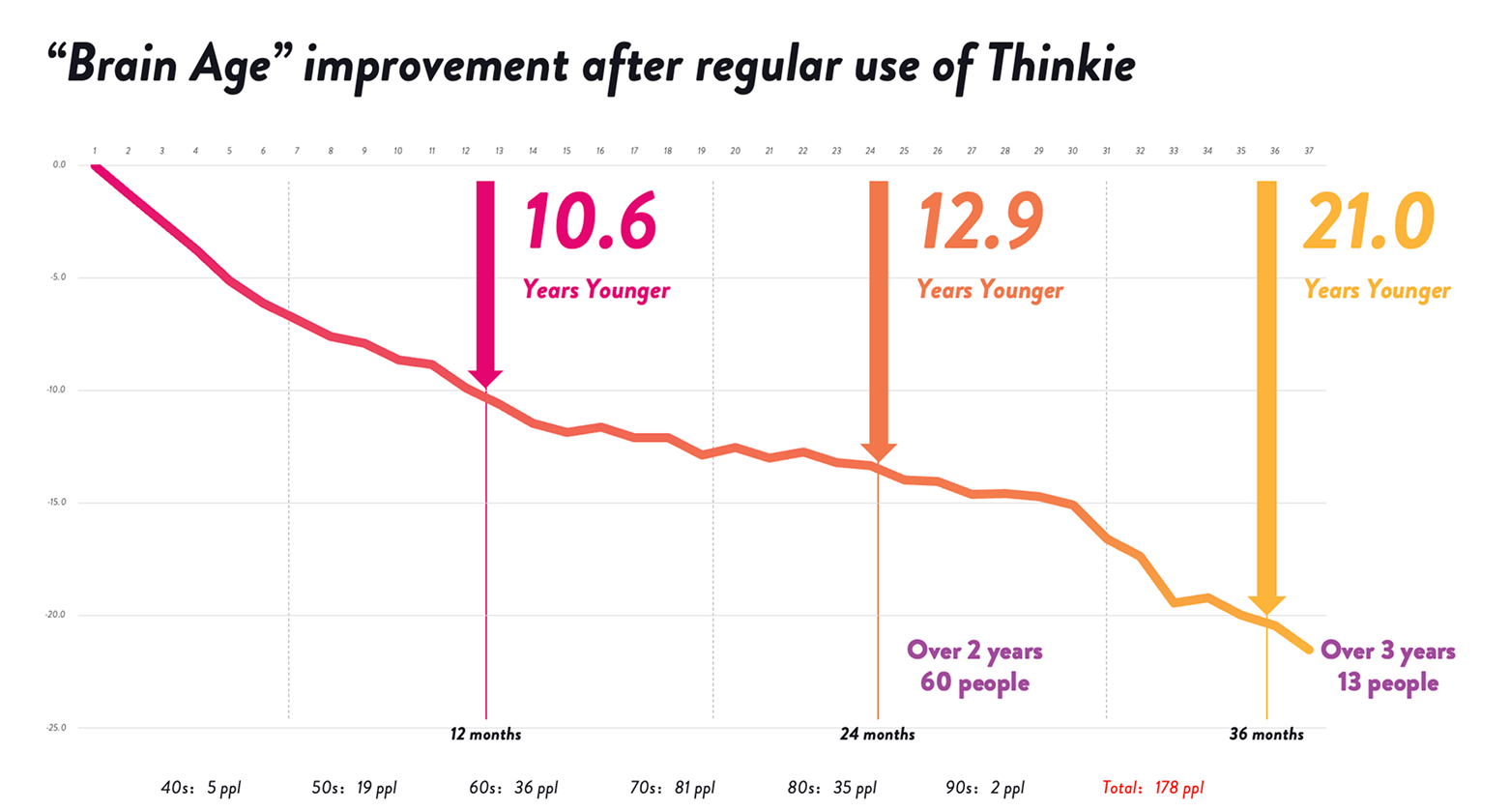
The Thinkie sensor detects brain blood oxygen levels safely and non-invasively.

Real-time feedback shows focus and mental effort.

Thinkie’s visual feedback and data insights help you get more out of every session.


fNIRS technology works by measuring near-infrared light as it passes through the brain, detecting changes in oxygen levels within hemoglobin. The Thinkie app interprets these shifts in cerebral blood flow volume as increases or decreases in neural activity.
These measurements reveal how active the brain is at any given moment through a continuous feedback loop. By capturing ongoing changes in oxygenated blood flow, the Thinkie sensor provides real-time insights into your brain’s engagement. This method of measurement is recognized by the U.S. Food and Drug Administration (FDA) as a standard for assessing cerebral hemodynamics (21 CFR § 882.5050).


Prefrontal cortex the part of the brain responsible for focus, decision-making, memory, and self-control. This region is like the brain’s “control center,” guiding how we think, plan, and stay attentive.
By monitoring blood flow in the prefrontal cortex, Thinkie can give you the most relevant insights into your mental effort—helping you know when you’re fully engaged and pick the right exercise for you.


The Thinkie app measures the intensity of your training by measuring your brain’s increase in blood flow, and monitor the effectiveness by tracking your cognitive performance.
Follow the real-time color coded signals during your training session to find the best way to engage your brain.
Check your brian age regularly to track your progress. You can expect to see changes after regular use for 4 weeks.

Source: Analysis of real-world data from 178 users in Japan using the Brain Age mental speed assessment.
Thinkie’s Brain Age test is a gamified cognitive test that assesses your processing speed, working memory and attention.

Cognitive Training with Neurofeedback Using NIRS Improved Cognitive Functions in Young Adults: Evidence from a Randomized Controlled Trial
This randomized controlled trial investigated the effects of cognitive training with neurofeedback (CT-NF) using near-infrared spectroscopy (NIRS) on cognitive functions in young adults. Major findings include that CT-NF training leads to greater improvements in working memory, processing speed, and attention. Subjects' improvements were associated with increased brain activity in the dorsolateral prefrontal cortex.
Source: Brain Sci. Cognitive Training with Neurfeedback Using NIRS Improved Cognitive Functions in Young dults: Evidence from a Randomized Controlled Trial 2022, 12, 5.

This report provides methods, measures and results pertaining to the Effects of Cognitive Training (ECT) study, whose aim is to investigate the effects of engaging in 4 weeks of app-based ABC program (Thinkie) vs. playing Tetris. The study, sponsored by Mitsui, was conducted by Drs. Acevedo and Collins in the Department of Psychological & Brain Sciences at the University of California, Santa Barbara. Data collection for this project began in May 2021 and ended in December 2021.
Results
The study's results showed that the treatment group demonstrated significant improvements in memory, verbal memory, and composite cognitive function, while both groups showed improvements in processing speed and executive function. This suggests that cognitive training program with neurofeedback, particularly with ABC exercises, can enhance cognitive function in older adults.
Methods
All procedures were reviewed and approved by the Human Subjects Committee (the IRB) of the University of California, Santa Barbara (IRB #: 65 - 20 - 0856). Participants were 125 right-handed individuals, ages 54-84, living independently and in relatively good health. Participants were recruited via listservs, community groups, social media, advertisements in the Santa Barbara community, and via independent living organizations.
Source: Effects of Cognitive Training Study: Final Reprot by Mitsui by Acevado, B & Collins, N. (January, 2022)

You might think doing virtually any on-screen activity would equally benefit the brain, but the results of this study speak volumes to the contrary. Among its key findings is that the ability to measure the effects of a mental activity is critical to meaningful brain training. That is why fNIRS neurofeedback technology is so important, and why we use it in the Thinkie system.
Source: Brain Sci, Dorsolateral Prefrontal Cortex Activity during a Brain Training Game Predicts Cognitive Improvements after Four Weeks Brain Training Game Intervention: Evidence from a Randomized Controlled Trial 2020, 10, 560


The Thinkie sensor, developed over a span of 27 years and based on functional Near-Infrared Spectroscopy (fNIRS) technology, continually measures the blood flow in the prefrontal cortex as the activity is taking place, and provides an immediate visual representation of that brain activity level.
Thinkie Inc has been able to adapt this complex technology to a safe product that can be used by people of all ages to monitor their activities to improve mental acuity.
Our product experts will answer your questions, understand your needs, and walk you through the science behind Thinkie.
We’ll help you learn how to get the most out of Thinkie’s brain training exercises and discover the best approach for your personal goals.
You can also take a Brain Age Check Up to take a peek into your cognitive abilities!